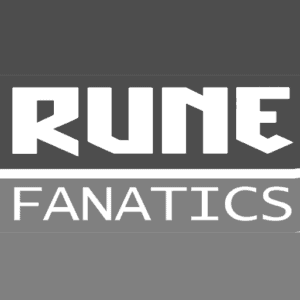RuneScape, also called RS3, was originally a browser game built in the Java programming language but mostly replaced by an independent coded client. C ++ in 2016. The game has more than 200 million accounts created and approved by Guinness World Records as the world’s largest and most updated free MMORPG.
RuneScape occurs in the world of Gielinor, an ancient dream site divided into different kingdoms, regions, and cities. Players can travel all over Gielinor in many ways, including footwork, magic spells, or rental ships. Each region offers a variety of monsters, resources, and demands to challenge players. The game’s plot was also tested with a video game tied to one of its creators’ websites, FunOrb, Gielinor Soldiers, and the Betrayal novels in Falador, Return to Canifis, and Blood Legacy.
Players are represented in the game by custom avatars. RuneScape does not follow a straight line of the news; instead, players set their own goals and objectives. Players can choose to fight non-player monsters (NPCs), complete quizzes, or expand their knowledge of existing skills. Players interact by trading, chatting, or participating in small games and activities, some of which are competitive or natural combat, while others need to play cooperatively or collaboratively.

The first RuneScape public version was released in January 2001 in beta format, with Jagex as its patent holder being built over the course of a year as the game became famous, so RuneScape 2 was launched. The third rematch of the game, known as RuneScape 3, was released in July 2013. Old School RuneScape, a different, older version of the game since August 2007, was released in February 2013 and is kept next to the first client. It was declared that mobile ports of both RuneScape models would be released for Android and iOS devices in 2018. RuneScape was released on Steam on October 14, 2020.
History
Andrew Gower did RuneScape with the help of his brother Paul Gower. It was released as a beta version on January 4, 2001, and originally worked in their parents’ house in Nottingham. In December 2001, the Gower brothers, along with Constant Tedder, formed Jagex to take over the RuneScape business. Among the classical inventions, Jagex developed a translated language that defined the domain called RuneScript, which is used by the RuneScape server to manage events. In February 2002, a monthly membership service was introduced, allowing access to additional features, including new locations, requirements, and features not available to major users.
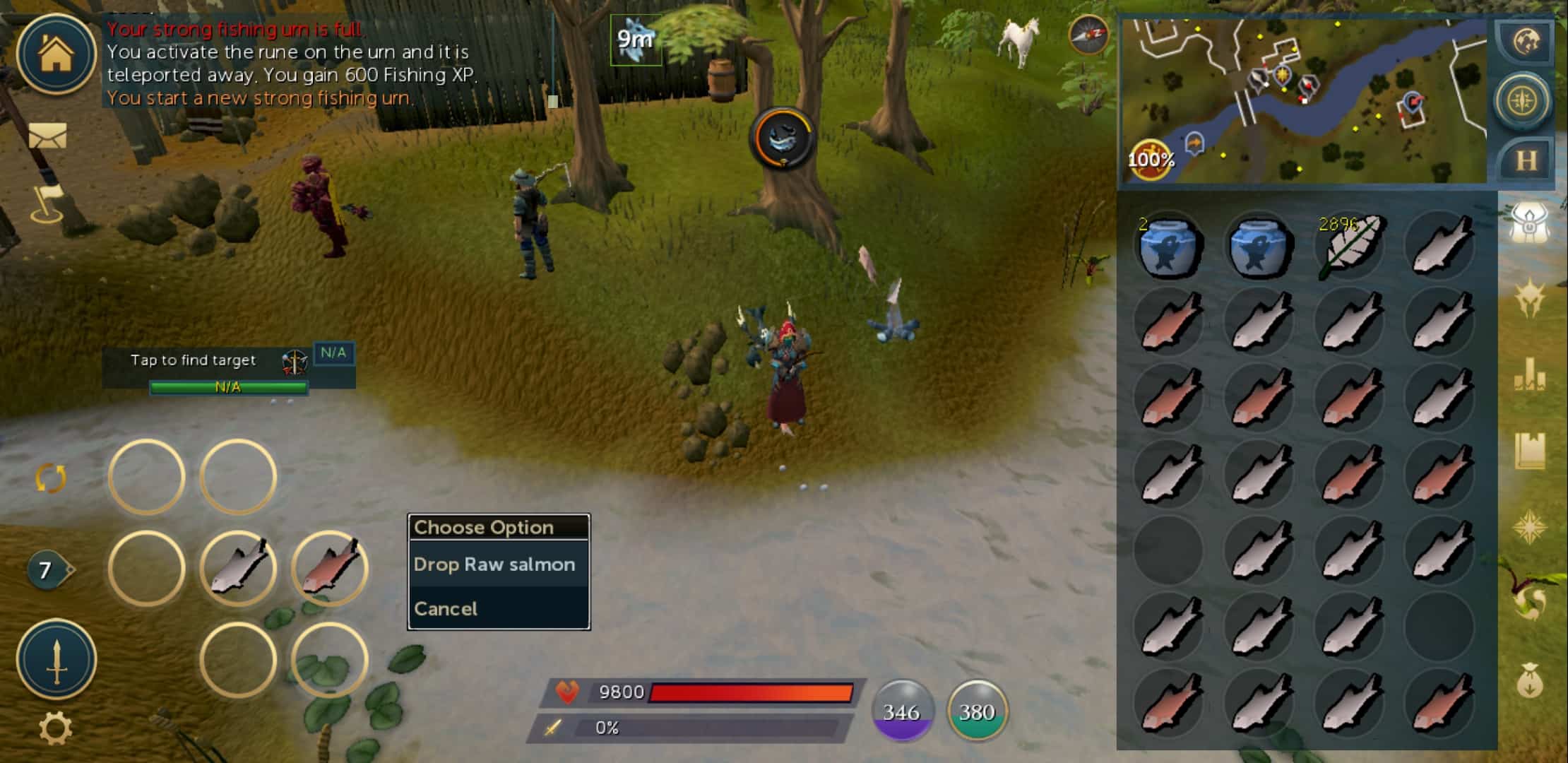
The developers also redesigned the game engine, producing a new version of the game with three-dimensional graphics called RuneScape 2. The beta version of RuneScape 2 was released and paid members a trial period starting on December 1, 2003, and ending in March 2004. RuneScape, while the older version of the game is stored online under the name RuneScape Classic. On January 12, 2006, Jagex blocked more than 5,000 Classic accounts for cheating. To prevent further fraud, Classic was closed to new accounts, and access was limited to accounts played at least once between August 3, 2005, and January 12, 2006. Additional place in November 2009, June 2010, and September 2011.
To support RuneScape’s free content, ads appear in the banner above the play screen on free play servers. Since computer users may use ad blockers, which may discourage advertisers, Jagex introduced a law prohibiting players from blocking these ads.
On May 16, 2006, Jagex upgraded the RuneScape gaming engine, improved game loading times, and reduced its memory requirements. On July 1, 2008, Jagex released a beta of their members’ High Detail “mode, which was expanded and released to the players two weeks later.
On February 14, 2007, the German version of RuneScape was released, followed by a French translation on December 11, 2008, the Portuguese in Brazil on July 24, 2009, and Latin American Spanish on April 25, 2013. take it to the East [RuneScape] market in Asia and the Eastern European market and “RuneScape is not Japanese, but can work well in Malaysia as an example. And where is India in all this? I think RuneScape is a game that would be accepted in the English-speaking Indian country and the local Indian-speaking Indian country. We look at all those markets individually.
On February 28, 2012, an in-game feature called “Squeal of Fortune” was introduced, which allows players to win items daily by spinning the wheel. On April 2, 2012, players were able to use real-world currency to exchange extra spins, introducing a microtransaction type into the game. Jagex chief executive Mark Gerhard had previously described microtransaction as a “secret tax,” and the review made complaints to players who believed they had been “betrayed” by the change. In July 2012, Jagex released Solomon’s Supermarket, enabling it to use real money to exchange “RuneCoins” for the cosmetic prizes in the game. On August 29, 2012, Gerhard issued a response to the debate, describing the microtransaction as “important” and expanded the game for many more years to come. Instead of spinning the prize wheel, players are given keys that are used to unlock their favorite chest. On March 26, 2014, Gerhard reiterated his stance on microtransaction and its importance in reviving RuneScape and announced a partnership with Supersonic ads, allowing players to earn RuneCoins by viewing ads or sample products.
At RuneFest 2014, Jagex announced that they were developing a new client to replace the HTML5 version, which had never been released in beta due to performance issues. A new client, called NXT, will introduce betterment to loading times, new graphics results, and better performance. Closed betas took place on 19–22 February and 18–21 March 2016, followed by a public release on April 18, 2016.
On May 23, 2018, it’s stated that due to frequent interruptions and the company’s latest non-compliant gaming engine, RuneScape Classic servers would be permanently shut down on August 6, 2018.
Servers
As of November 2011, there were 139 English RuneScape servers available worldwide, calculated and labeled “worlds” by players and Jagex. They are found in the United Kingdom, the United States, Canada, the Netherlands, Australia, Sweden, Finland, Belgium, Ireland, Norway, Denmark, New Zealand, Mexico, France, Lithuania, and India. Servers are removed or installed where necessary.
Each RuneScape server allows up to 2,000 players to log in simultaneously, allowing a maximum capacity of more than 278,000 players. Dedicated servers are free servers available to all players, as well as servers reserved for paid members. Some servers are provided with task labels, allowing players to perform tasks that require or wish to participate in a team to collect them together.
Graphics & Audio
RuneScape can be operated with a variety of click-through details. Highly detailed graphics improve texture and design, while low-resolution graphics provide a cleaner look and can reduce the risk of slipping on weak computers. RuneScape uses a graphics engine called “RuneTek 5”, which provides support for multiple graphics platforms such as DirectX, OpenGL, and video game consoles, as well as graphical effects such as blue boxes bright lighting, and Z-buffering. The high-end version includes hardware speed and can be provided using Java OpenGL or DirectX.
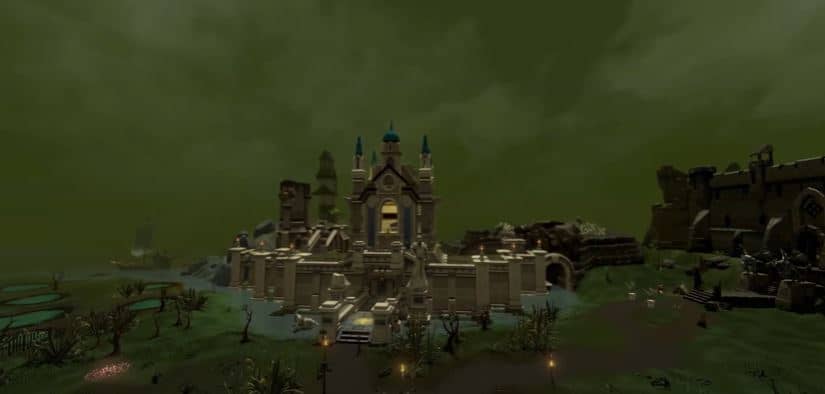
RuneScape installs a customized program. Characters are human; however, athletes can choose gender, hairstyle, facial hair, skin color, and clothing options. Appearance is aided by dressing or handling things. Players can express emotions through special animations called emotes, some of which are common and some that have been acquired through gameplay or released during holiday events. Common weapons of the same class, such as swords, use the same set of animations in warfare, while special weapons have their own distinct images.
RuneScape has original music and ambient sounds. Music is designed to describe the basic traditions of the various accessible areas, and ambient sounds, such as the sound of sea fish flying over the ocean, occur in sensible environments. The game also features voice simulation in certain areas and situations. The RuneScape 3 update also included orchestral music recorded in Bratislava, Slovakia, and performed by James Hannigan.
DarkScape
On September 16, 2015, Jagex released DarkScape, a different version of RuneScape, which had an open-world player compared to player combat. DarkScape was originally released with a lot of RuneScape content but received different content updates. DarkScape was completely free to play, with additional benefits reserved for paying subscribers. On February 29, 2016, it was announced that DarkScape would close on March 28 due to infertility.
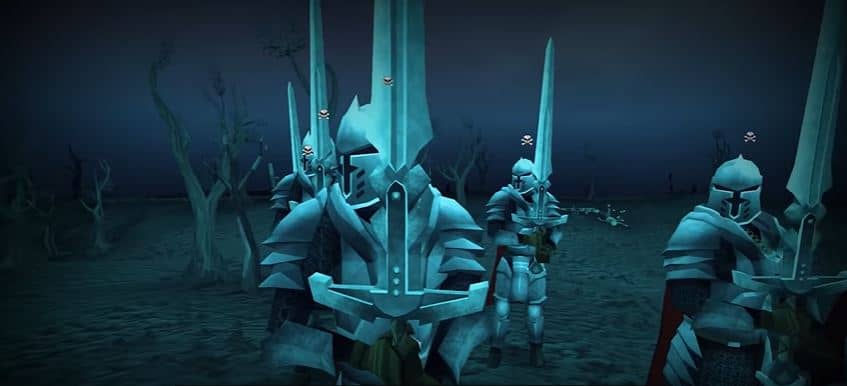
Old School RuneScape
In February 2013, a referendum was opened, allowing players to decide whether Jagex should open a separate RuneScape body from August 2007. Old School RuneScape was opened to payers on February 22, 2013, after the poll received 50,000 votes and freedom was released. The version was later released on February 19, 2015. It was originally created as a direct copy of RuneScape from August 2007 and received additional standard content. Old School RuneScape is completely based on the community; for any proposed renewal or idea conveyed in the game, you need at least 75% of the public to vote ‘Yes’ on it, and if you do not pass, it can be discarded or rebuilt so that players can receive a more acceptable renewal. On July 17, 2017, Jagex announced the Old School Runescape mobile port, released in 2018.
Game-Play
Input machines primarily point and click. The player controls one character and can contact NPCs, objects, and organizations in the game world by left-clicking or by selecting an option in the right-click menu item, as many items can offer more than one contact option. Users can gain experience points and enhance their individual skills, making their play character more powerful or able to use that skill. There is a huge selection of skills, collected mainly between three different categories: combat, encounter, and art. Fighting skills help the player defeat monsters of enemies or other players, with skills such as power, scope, and magic, among others. Collecting skills, such as mining, fishing, and logging, allow the player to collect in-game services, and artistic skills include skills such as cooking, craftsmanship, and threat.
Old School RuneScape, similar to RuneScape, has a free gameplay mode with in-game content, which makes its money through membership subscriptions from paid and gaming players accessing the full game.
Skills
There are 28 skills in RuneScape, 17 skills are available to players who play for free, and another 11 are added to members, enabling players to perform a variety of tasks that allow them to interact with NPCs, the environment, and other players. Players gain experience points in a skill when using it. For example, digging ore trains mineral skills, and when a player collects points of sufficient knowledge in skill, their character will “balance.” As the skill level increases, the ability to bring back better materials and produce better products grows, as experience is provided when the player uses new skills. The full level of player skills in part reflects the status of the player in the game, and subscribers with the highest levels can come from high schools. When they reach the highest level of skill, members can buy a special cap to show their success.
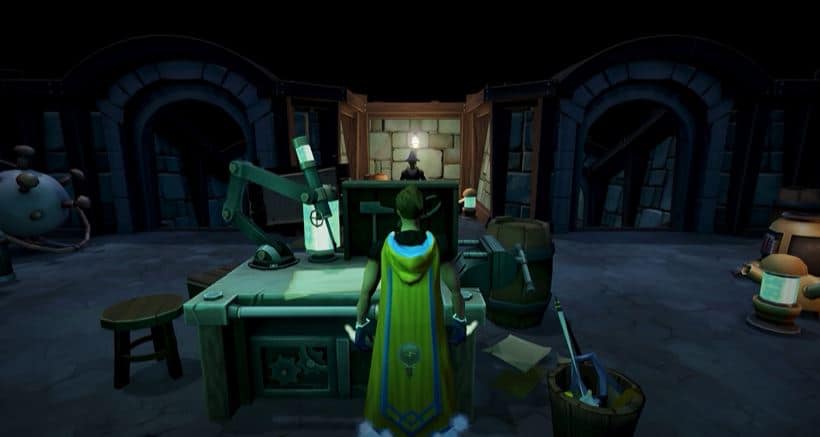
Other skills, such as chopping wood and fishing, enable the athlete to collect raw materials that can be processed into other useful items, such as cutting and cooking, respectively. Created items can be used by the player or sold in stores with other players. Other skills allow players to kill certain NPCs, build their own houses, navigate the map with great ease, steal various NPCs, market tables, and chests in the arena, fire fires, cook their own food, make their own running stones and weapons, plant their own plants, hunt NPC animals, raid pets, and summon family members to help fight and train skills.
Combat
RuneScape has a real-time combat system. Fighting is an essential part of the game, enabling players to defeat monsters to find dropped objects or complete quests. The level of combat is an indication of how strong a player or NPC is in a battle. Players are determined by using a mathematical formula in their combat skills. Players engage in battle by clicking on the enemy who wants their character to attack them and will proceed to attack until they destroy their opponents, die or retreat from the battlefield. Most of the game’s weapons are past or present, and they have different strengths and weaknesses. Players can also summon experienced warriors, use special attacks called “skills” to deal with further damage, and use the medicine and Prayer’s ability to increase their fighting power.
Combat is divided into three main categories: melee, magic, and scope. Melee’s attack is very close, the magic attack focuses on using escape stones to make spells, and various attacks use projectile weapons such as arrows, arrows, or throwing knives. These types of combat form the “Combat Triangle,” which controls the efficiency of the styles in the form of rock-paper-scissors; different melee beats, different magic beats, magic beats melee, and each style is neutral in its own way. The pros and cons of the combat triangle apply to both NPCs and opposing players. Players are not required to select a character category and are not bound to a particular battle category. They can freely switch between or combine three combat styles by changing weapons and armor.
The fight is dominated by a system of points of life. Everyone who fights for the highest power of life points and dies when his or her health is reduced to 0. Lost points of life can be gained by eating certain foods or drinks or by spreading skills. Players who die and reappear in a place to make their own choices about their lives and their points are restored skills; however, they discarded all but three selected items, as well as some common items. Death gives birth to a tombstone that will hold all the player’s belongings and will remain for the allotted time; however, there are situations in which everything will be lost at death. If the player does not return on time, the grave will collapse, and their belongings will disappear.
In June 2012, players were invited to test beta on a new combat system called “Evolution of Combat,” which included basic changes such as redesigning the Combat Triangle to avoid melee attacks and incorporating special weapon attacks with skills that produce a range of effects when activated. The program was released in a live match on November 20, 2012. Various votes were added to the players in which the game will determine the outcome of future content development, some of which will determine the development of an improved combat system. with a separate combat program called “Legacy Mode” opened for players on June 16, 2014, before being introduced in a live match on July 14. Inheritance mode allows players to switch to the combat system and virtual interface from before June 2012 instead of the Evolution of Combat system.
Player VS Player Combat
Player-to-Player combat (PvP) can be played in certain day-controlled games and a place is known as Wilderness. Duel Arena allows players to deposit money and items, while other PvP games offer their rewards. In the Wilderness, players can take part in battles as long as their level of battle falls to a certain level, and if a player kills his opponents, they will be able to claim their opponent’s items as a reward.
Before December 2007, players went into the Wilderness to fight other players within a certain level of combat, hoping to kill them and get their belongings. In December 2007, Wilderness was changed to prevent players from transferring in-game items with real-world currency. PvP fights have been removed from the desert and temporarily banned from new mini-games called Bounty Hunter and Clan Wars. The Bounty Hunter was replaced by a special Bounty Worlds on May 6, 2009, where players were confined in the desert and given certain murder targets. “PvP Worlds” was launched on October 15, 2008, when the players were able to fight almost anywhere in Gielinor, but these and the “Bounty Worlds” were removed when the PvP in Wilderness was restored on February 1, 2011.
Non-Player Interaction
NPCs fill the Gielinor area. Some NPCs, such as shopkeepers and other characters in demand, are not available to fight. However, many NPCs can be attacked, and these are called monsters. Monsters range from ordinary, low-level creatures, such as chickens and goblins, to unique and powerful monsters, such as the Queen Black Dragon, Telos, and Vorago.
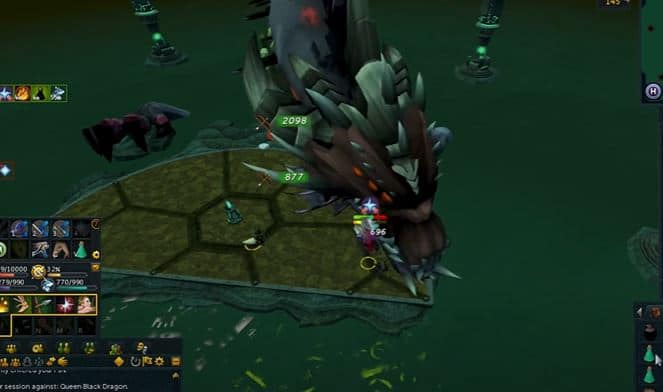
Many monsters have their strengths and weaknesses, different from the exception of certain bosses, who have no particular weaknesses. Demons, for example, have weak defenses against detailed attacks, while steel dragons have extremely high defenses in the range. The weakness of each animal is reflected in the visible link above its model, as well as it’s level of resistance to living spaces.
Beasts can be either aggressive or not. Non-violent monsters ignore players unless they are attacked, while aggressive monsters may attack all players or may only attack players with lower levels of combat, depending on the circumstances or location. This could make certain areas throughout Gielinor dangerous or disrupt players with low levels of combat.
Player Interaction
Players can work together by trading, chatting, or participating in small games and activities, some of which are competitive or natural combat, while others need to play together or collaboratively. Players can trade gold objects and coins with each other, either through face-to-face trading or through a large automated market known as the Grand Exchange.
The chat system enables players to interact with others. Public Chat streams text to local players on a single server, both with text from the top of the speaker and in the message box. Friends Chat broadcasts text in a message box only to specific players assigned to a specific channel, which can be found in any of the worlds of RuneScape. Each Friends Chat channel has its own owner, who can assign different categories to individual players; Player level means their ability to perform administrative tasks within a channel. Clan Chat allows family members to communicate through a different channel. Quick Chat allows players to choose from a list of pre-determined messages to send as Public Chat, Clan Chat, or Friends Chat.
RuneScape also has small independent games, though most are only available to paid members. Minor games occur in specific areas and often involve certain in-game skills, and often require players to cooperate or compete. Examples of these mini-games include Castle Wars, such as the real game Capture the Flag, Pest Control, a small war-focused game, and Fist of Guthix, in which one player (the hunter) tries to stop another (hunted) player from collecting charges. Become a magic stone.
Quests
Requirements are a series of tasks with a list of topics players can choose to complete. These often have requirements including lower levels of certain skills, military levels, points of the quest, and/or elimination of other demands. Players receive a variety of rewards for eliminating demands, including money, different items, new locations, quest points, and/or an increase in skills experience. Some demands require players to work together, and many require players to participate in a challenging battle. Requirements are categorized according to needs and difficulties. Once a player has fulfilled all the obligations in the game, an achievement known as the “Quest Point Cape” can be claimed. New questions are released from time to time.
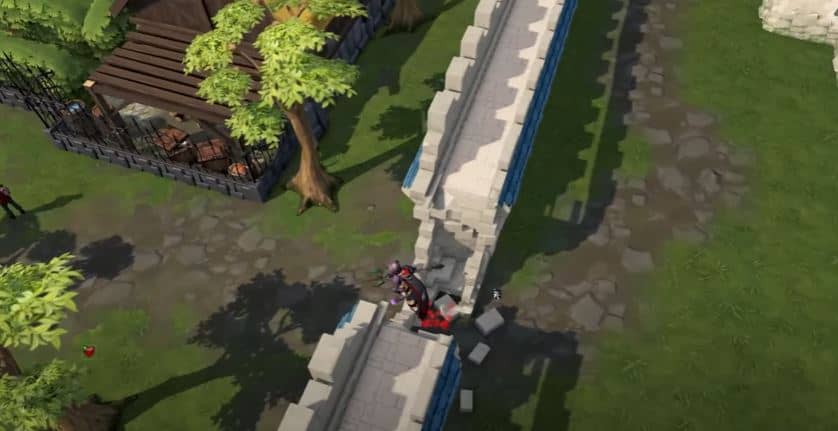
Conclusion
While it may not be one of the above, it is a combination of all these three elements, and the sky is the limit from there. Things, for example, feelings of attraction, the hassle of playing to give a high sense of gain, no small exchange for making a winning payout process, a test framework to decide on new updates, and more highlighting OSRS have the opportunity to bring to the table not available on RS3. RS3 tries to force other people. The one who currently enjoys goliaths in the field, for example, WoW, Guild Wars, and many different MMORPGs.
FAQs
Question: What should a beginner do in RuneScape?
Answer: A beginner’s guide to RuneScape:
Follow the path. Completing the tutorial will transport you to Gielinor where you’ll find yourself put on the Path System.
Set off on an adventure. Off the beaten paths and out of the tutorials, your search for adventure can truly begin.
1. Build up your character
2. Get a handle on combat
3. Joining a Clan
Question: What skills should I level first in RuneScape?
Answer: Gathering skills + Slayer and combat. Those are the ones you should do first. Then once your gathering skills are at least 10-20 levels above your Artisan skills, you need to start work on all the others.
Question: Is RS3 easy?
Answer: No, it’s not too easy, there isn’t even any way to buy XP in skills, there clearly isn’t an abundance of items in the game, more moneymaking methods are being made with each update.
Continue reading more RS3 guides:
Best Non Degradable Armor in Runescape
Chaotic Spear Guide: How to Acquire This Top Weapon
- Zalcano OSRS Guide: Slaying The Imprisoned Demon - September 30, 2021
- Birdhouse OSRS Guide: What’s The Bird on The Street? - September 30, 2021
- Shield of Arrav OSRS Guide: Foiling a Grand Heist - September 30, 2021

